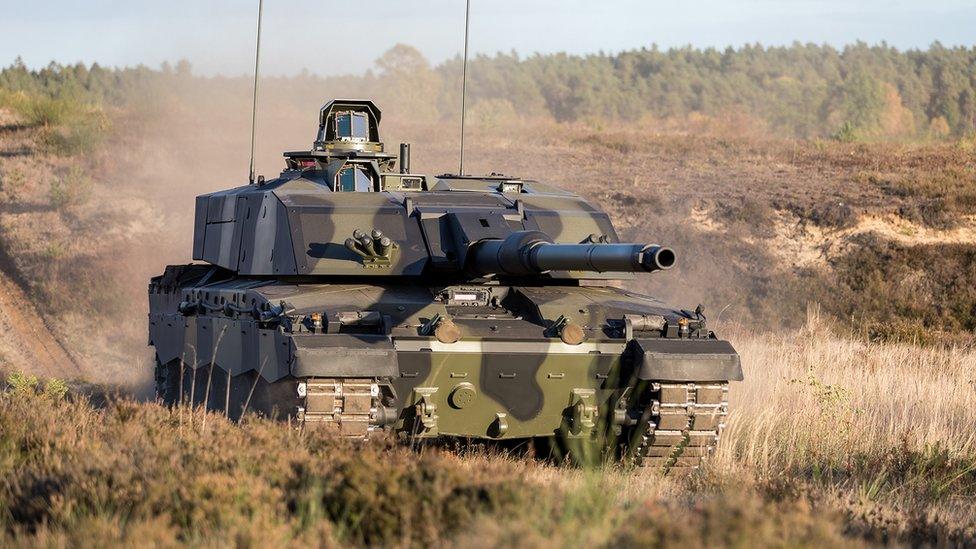Newcastle engineering firm wins £25m tank contract
- Published

The Challenger 3 tanks will replace the existing Challenger 2 vehicles
A new £25m contract to build "the most lethal tank in Europe" will support 280 jobs, an engineering firm has said.
Pearson Engineering in Newcastle will make turret armour for the British Army's new Challenger 3 tanks.
It is part of an £800m Ministry of Defence deal to provide the Army with 148 upgraded, fully digitised armoured vehicles.
Under the restructure the overall number of tanks will be cut from 227, following a defence review in 2021.
It will also see the Army's size reduced to 72,500 soldiers by 2025 as part of an increased focus on drones and cyber warfare.
Challenger 3 is expected to be in use from 2027, replacing the Challenger 2 models which have been operational since 1998.

Defence procurement minister Jeremy Quin (right) visited the Scotswood Road site for the announcement
Craig Priday, managing director of Pearson Engineering, said: "People are very proud of the history of this site - this has been a manufacturing site for defence for 175 years and it's great that we are continuing that tradition today.
"This sustains 285 jobs here at our site in Newcastle, we are recruiting apprentices right now and this gives us confidence for the future."
Defence procurement minister Jeremy Quin MP, who visited the Scotswood Road works, said: "Challenger 3 tanks will be at the forefront of the British Army's ground force deterrent against our adversaries.
"They will be equipped with the latest digital enhancements and weaponry, providing support and reassurance to our allies."
The minister also opened an artificial intelligence (AI) and science and technology hub in the city, which is expected to be up and running later this year.
It will support the work of 15 scientists involved in the government's Defence Science and Technology Laboratory (Dstl) programme.

Follow BBC North East & Cumbria on Twitter, external, Facebook, external and Instagram, external. Send your story ideas to northeastandcumbria@bbc.co.uk, external.